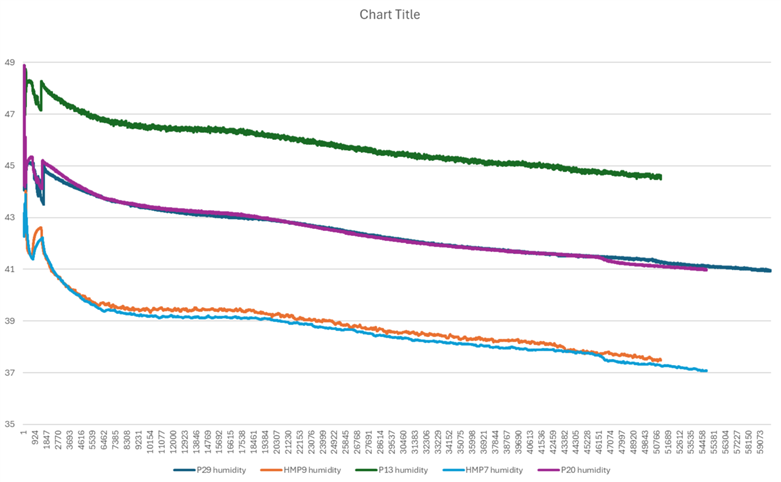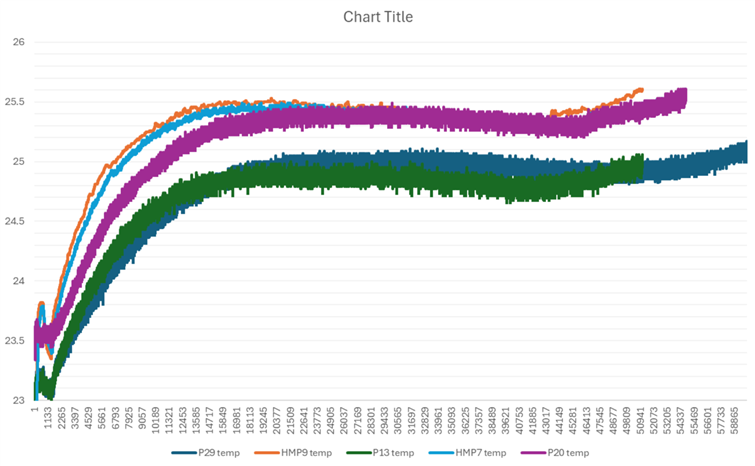Tool/software:
Hi,
We are experiencing an offset issue in the humidity measured by HDC3022DEJR.
We have been using HDC3022DEJR to measure the humidity and temperature of flowing air at flow rates between 1-10 liters per minute. Out of 31 samples that we've tested, 22 fell within ±2.5% of the humidity reported by set of two calibrated reference sensors. The nine unfortunately were off but varying degree, with some samples by as much as 14%. All of our samples tend to report elevated humidities in comparison to our reference sensors.
Below are two images from a test where we compared three samples to a set of two reference sensors.

Above is a graph representing humidity data from during the test.
Above is the recorded temperature data during the same test.
Even though the humidities we observed are always above the ones reported by the reference sensors, to debug the situation we performed the 5 day soaking period at 50%rH 25C, which is recommended in the datasheet of HDC3022. Images of it's effect below.

Above image compares the humidity reported by one of the samples (focused test, different test run) to one reference sensor before the soaking process.
Above is the same test process being applied to the same device, but where the sensor has been changed to another, and soaking was performed.
While it is at this point still inconclusive whether the change we saw in the focused test was due to the soaking process, or the change of the sensor, we'd be happy to receive any insight into the issue why this of a large percentage of sensors seem to disagree, by various degree, with the reference sensors.
Thank you for your insight.
Best Regards,
Tuomas Tissari


